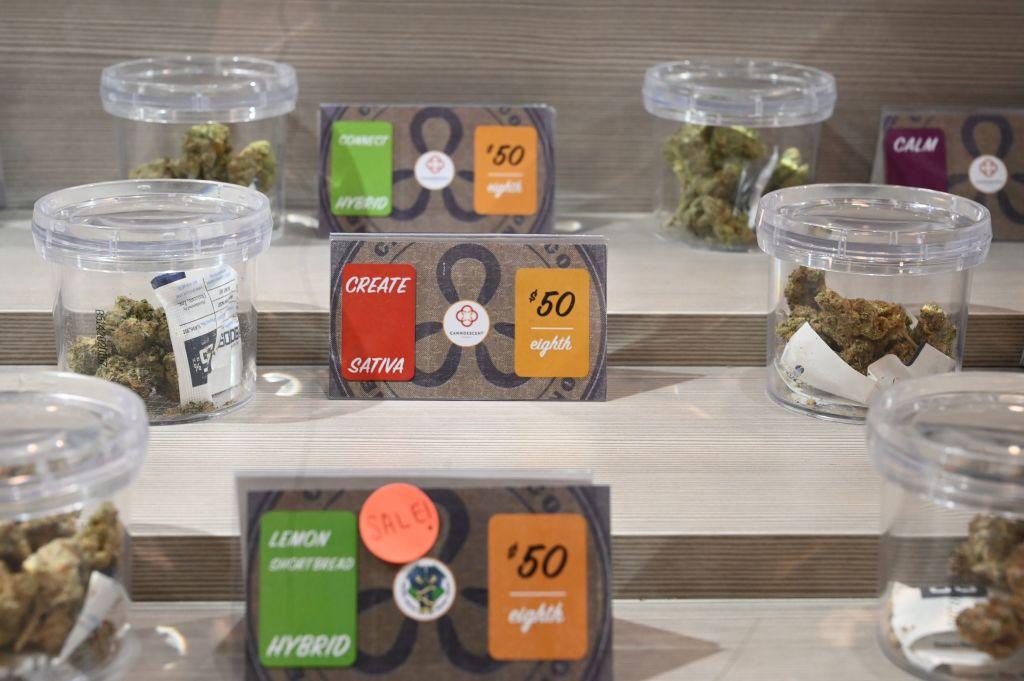Missouri and Maryland voters on Nov. 8 adopted ballot measures allowing adult-use marijuana, boosting the number of states where recreational weed is legal for those over 21.
Midterm voters in Arkansas, North Dakota, and South Dakota, meanwhile, rejected proposals to legalize recreational marijuana use by those 21-and-over, marking what is believed to be the first time such legalization measures were denied in statewide ballot referendums.
According to the National Conference of State Legislatures (NCSL), adult use of marijuana is now legal in 19 states. There are 37 states with legal medical marijuana programs, the NCSL documents.
New Hampshire became the 19th state to legalize marijuana when lawmakers adopted a 2022 bill allowing cannabis use by adults. With the Nov. 8 ballot measure votes on the books, Maryland and Missouri become the 20th and 21st states to do so.
There was never much doubt that Maryland’s legalization proposal, “Question 4,” placed on the ballot by state lawmakers, would pass; how Missouri’s proposed “Amendment 3” would fare was uncertain.
With 82 percent of 1.473 million ballots cast, 65.6 percent said “Yes” to Maryland’s “Question 4,” which states: “The possession and use of cannabis would become legal for people 21 and older starting in July 2023.”
When the law goes into effect on July 1 next year, the purchase and possession of up to 1.5 ounces of cannabis will be legal for adults 21 and older.
Under the measure, adults are allowed to grow up to two plants for personal use and can gift cannabis legally.
Missouri’s Constitutional “Amendment 3,” asking voters to say “yes” or “no” to the statement, “The possession and use of marijuana would become legal for people 21 and older,” was approved by 53.1 percent of more than 2 million ballots cast in the Nov. 8 vote.
The amendment cannot be implemented until Dec. 8. The soonest Missourians could purchase marijuana products recreationally is Feb. 6, 2023.
According to the amendment, recreational marijuana sales of will be taxed at 6 percent. Industry and state officials estimate Missouri’s recreational marijuana market will generate about $40.8 million in revenue annually.
Missouri’s new law allows adults to possess up to 3 ounces of cannabis and to cultivate up to six for personal use.
“Amendment 3” also creates a program to review and expunge criminal records for eligible non-violent marijuana-related offenses.
“Missourians have clearly demonstrated that support for ending prohibition isn’t relegated to the coasts or deep blue states, but that it is a common sense position that resonates with all Americans,” executive director of D.C.-based marijuana lobby group NORML, Erik Altieri, said in a statement.
“With the approval of Amendment 3,” he said, “Missouri voters rejected the failed ideas of the past and elected to chart a new path oriented on justice and sound public policy.”
Missouri NORML coordinator Dan Viets, who co-authored and chaired the Amendment 3 Advisory Board, called the measure’s adoption “truly a historic occasion.”
“This means that the great majority of the 20,000 people who have been arrested year after year in Missouri will no longer be subject to criminal prosecution for victimless marijuana law violations,” he said in a statement.





